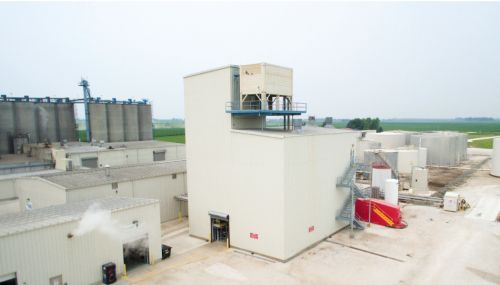All
NTSB Demands Audit of FMCSA
by Matthew Wrobel, Foley Services

Schadenfruede. That’s not a typo — it’s a (long) German word that means taking pleasure at the misfortune of others. There are going to be plenty of motor carriers feeling that way this month, as the National Transportation Safety Board has laid a broadside at the Federal Motor Carrier Safety Administration.
Citing a number of accidents that it has investigated, the NTSB has raised questions about FMCSA’s ability to regulate the industry and improve safety. The NTSB has demanded that FMCSA undergo a full audit by government officials.
While it would probably be difficult to find any sympathy at carriers who have undergone an FMCSA audit or Compliance Review, motor carriers should be wary about what that could mean. The results of the audit are unlikely to improve the situation for carriers. Much more likely, it means that enforcement and oversight is going to get much worse.
NTSB Complaints
Essentially, NTSB has said that FMCSA is not doing enough to prevent accidents involving motor carriers (FMCSA’s mission statement). They have also raised concerns that FMCSA’s new systems (CSA) are not aggressive enough at going after carriers with past violations.
“While FMCSA deserves recognition for putting bad operators out of business, they need to crack down before crashes occur, not just after high visibility events,” said NTSB Chairman Deborah A.P. Hersman. “Our investigators found, that in many cases, the poor performing company was on FMCSA’s radar for violations but was allowed to continue operating and was not scrutinized closely until they had deadly crashes.”
NTSB criticized the “quality and thoroughness” of FMCSA’s compliance reviews and took a hard line against FMCSA performing focused compliance reviews that only look at one area of the regulations.
Accidents
NTSB has come to this point after investigating a number of accidents that it believes FMCSA had the power to prevent. In the four cases FMCSA had either been investigating the carrier for other reasons and failed to note issues that contributed to crash or they had deemed the carrier to be safe. NTSB was disturbed by the fact that these carriers, rated ‘satisfactory,’ could be found non-compliant so quickly after the accident.
The four accidents cited occurred in the last 12 months indicating that this is an ongoing problem that has not been solves by the shift to CSA-based compliance. The four accidents include:
- Pendleton Ore., Dec. 30, 2012
- San Bernardino, Calif., Feb. 3, 2013
- Elizabethtown, Ky., March 2, 2013
- Murfreesboro, Tenn., June 13, 2013
What Does This Mean?
Unfortunately, this probably means that we can expect an increase in enforcement in the next few years. It continues a trend from recent months that is forcing FMCSA to behave much more aggressively towards carriers. Other recent changes include a Congressional directive that FMCSA can no longer take a carrier’s ability to pay as a factor when deciding to levy fines for non-compliance.
If NTSB gets its way (and it usually does, as the passenger car and airline industries can tell you), FMCSA will have to increase the depth and number of compliance reviews. It will mean more inspections and much less leeway if errors are found.
While many carriers would laugh at this statement, FMCSA is actually comparatively friendly towards the industry. Between the recent developments in Congress and the results of this audit, we could see a big shift in that relationship towards one that is a lot more antagonistic.
Related Posts
 Why Quality Matters in Your Biofuel Blends
Why Quality Matters in Your Biofuel Blends
Posted on June 25, 2025
 Incorporating Higher Blends of Biofuels
Incorporating Higher Blends of Biofuels
Posted on May 14, 2025
 NORA Programs at Eastern Energy Expo
NORA Programs at Eastern Energy Expo
Posted on May 13, 2025
 March Short-Term Energy Outlook
March Short-Term Energy Outlook
Posted on April 28, 2025
Enter your email to receive important news and article updates.
